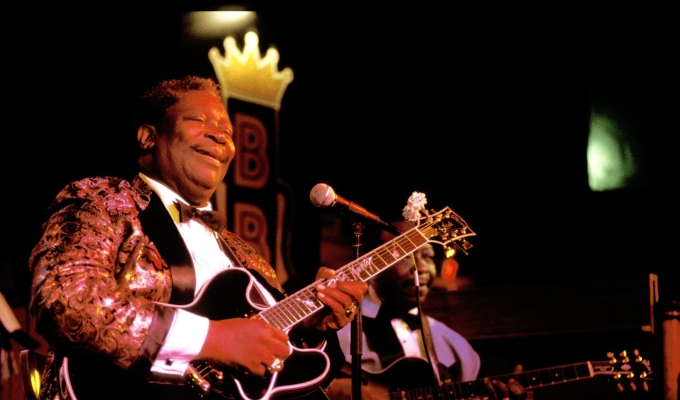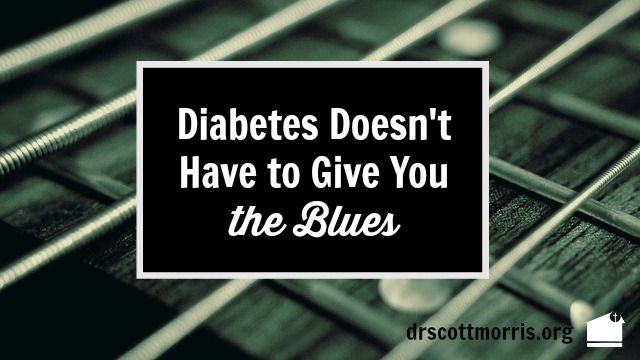The world lost a friend last Friday when bluesman B.B. King passed away. Since being diagnosed with type II diabetes 25 years ago, B.B. showed his love to the Church Health Center’s home city of Memphis and was vocal about his type II diabetes, urging others to check their blood sugar levels often. I’m grateful for the many years of enjoyment that he gave people with his guitar “Lucille.” I only briefly met him once, but I could tell he was full of energy and loved life.
During that meeting, he joked about the soft drink and fried foods he was eating. “I know this isn’t good for my diabetes, Doc”. It’s funny how people become hyper-aware of their health habits when I come around! But as I see it, King was like all too many men who view their diabetes as, simply, “the hand they were dealt.” In his view, there was little he could do about his diabetes, and he represented a disconnect between knowledge, fatalism and personal empowerment I see all too often among my own patients.
The problem begins with the patient not fully understanding what diabetes is all about. “I have sugar” is how it is often expressed to me, and I have never fully understood what those words mean to people. It usually implies “I eat too many sweets,” but it is rarely connected to the effect of the microvascular disease consequences of diabetes.
I usually describe adult-onset diabetes like this. Everything you eat, no matter what it is, is churned up in your stomach and turned into sugar. That sugar then goes into your bloodstream and is carried to all of the cells of your body. For the healthy patient, the body makes insulin that then grabs ahold of the sugar and pushes it into the cells. Once inside, the cells turn the sugar into energy, which is how we live.
Diabetes is a disease where there is something wrong with your body’s insulin. We know this because when we prick your finger to measure how much sugar is in your blood, your sugar is staying in your blood rather than getting into the cells.
I often use this analogy:
Say I am trying to dig a hole and I hire a man to do the job. Only, it turns out he is lazy and just piddles around. What can I do to get the job done? One option is to hire several lazy men. Although their work ethic leaves much to be desired, if I hire enough of them they will eventually get the job done.
This is effectively how most of our drugs work. Even though your own body’s insulin is “lazy”, the drugs tell it to make more insulin and if we get enough of it in the blood we can cause the insulin to push the sugar into the cells of your body. This is helped by eating the right foods and exercising.
Most people seem to understand this analogy. What they don’t always appreciate is that the consequences of diabetes over time are permanent and devastating. Blindness, stroke, dialysis, and amputation are all-too-common outcomes.
B.B. King was actually very lucky to live 25 years without these more serious consequences affecting him until late in his life. Others aren’t so lucky. Part of the tragedy of diabetes is that it affects the poor in more devastating ways because the lack of knowledge and access to medicine and healthy foods. Even after his legs were amputated, my father’s best friend drank chocolate Yoo-hoos several times a day because “no one was going to tell him what he could do”. He died from a stroke when he was 63 years old.
The good news is that for most people, diabetes is either preventable or manageable through diet, exercise, and the right medication. In the last 20 years, our knowledge of the disease has progressed tremendously. We now have dozens of effective treatment options, and we know much more about the role of diet in the prevention of the progression of the disease. Key to living with diabetes is an internal motivation to live a healthy life and avoid the foods and lifestyle choices we know are unhealthy. Yet in a world where we are surrounded by soft drinks, fried foods, and healthcare that isn’t focused on prevention, this is simply easier said than done.
Diabetes is more than “a hand you were dealt.” It’s something that you can control and live beyond. Honor the memory of B.B. King by taking control of your diabetes today.


